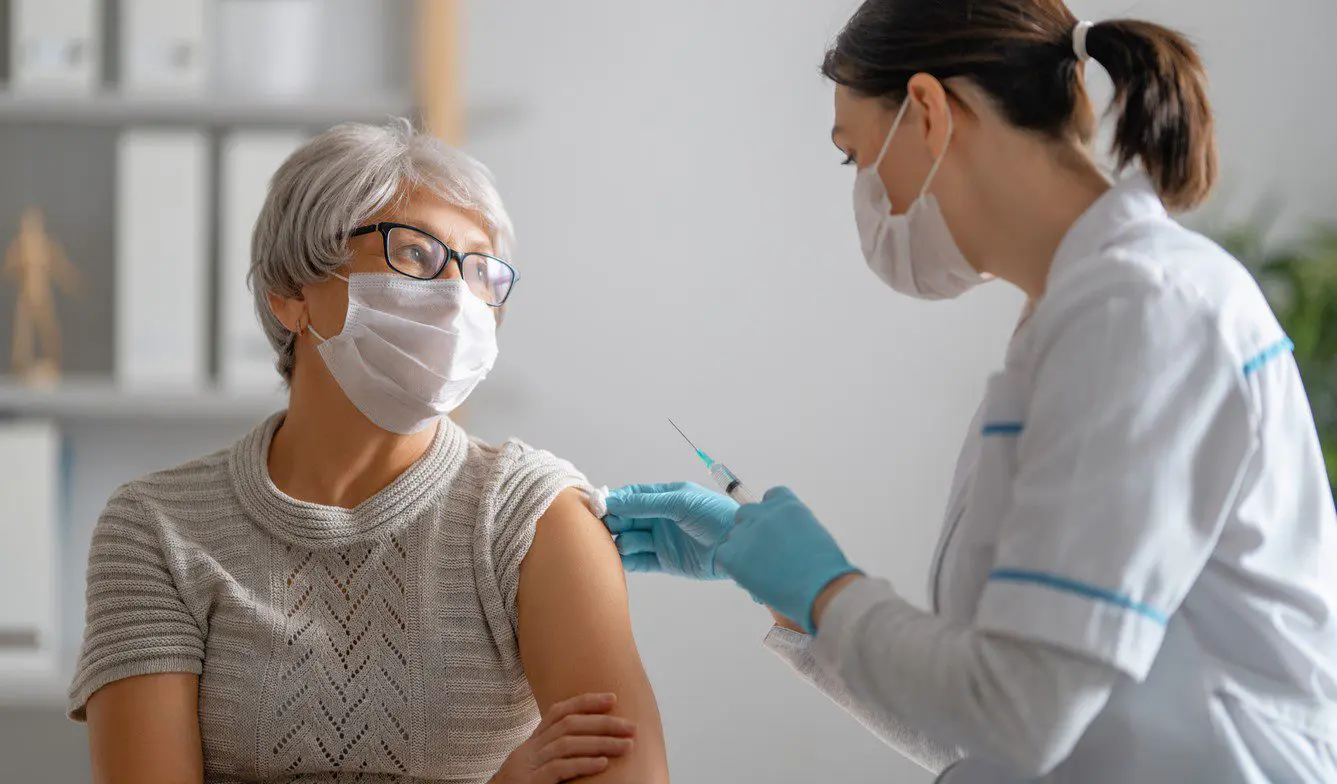 Vaccines help protect people from serious diseases—especially those with asthma or other allergic conditions. If you or your child has allergies, asthma, or take medicine that affects the immune system, it’s normal to have questions: Are vaccines safe? Could they make symptoms worse?
Vaccines help protect people from serious diseases—especially those with asthma or other allergic conditions. If you or your child has allergies, asthma, or take medicine that affects the immune system, it’s normal to have questions: Are vaccines safe? Could they make symptoms worse?
The good news is that scientists have studied these questions for many years. Their answer is clear: Vaccines are safe for most people with asthma or allergies—and they are strongly recommended.
Here’s what the latest research shows.
How Do We Know Vaccines Are Safe—Especially for People with Allergies or Asthma?
Vaccines are some of the most carefully tested medical products in the world. Before any vaccine is approved in the U.S., it goes through multiple phases of clinical trials with thousands of volunteers. These trials are designed to catch any safety concerns, including possible allergic reactions.
Once approved, vaccines continue to be monitored closely. Experts track real-world safety through national systems, including:
- VAERS (Vaccine Adverse Event Reporting System): A tool where doctors, patients, and caregivers can report any unusual or serious side effects.
- VSD (Vaccine Safety Datalink): A CDC program that studies vaccine safety using real patient data from large health systems.
- CISA (Clinical Immunization Safety Assessment Project): A team of doctors and scientists who review rare or complex vaccine cases, including reactions in people with underlying conditions like asthma or severe allergies.1
These systems help researchers identify even rare side effects and improve safety for everyone, including those with asthma or allergic conditions.
Do Vaccines Cause or Worsen Asthma or Allergies?
No. Large studies have shown no link between routine vaccines and the development of asthma, eczema, or seasonal allergies.2
In fact, staying up to date on vaccines can help people with asthma avoid serious complications. Illnesses like the flu, COVID-19, and pneumonia can trigger asthma attacks or make symptoms worse—so vaccination is an important way to stay protected.3
These findings are backed by recent studies, which continue to show that vaccines are safe and effective for people with asthma and allergies.
What the Latest Research Shows
Recent studies continue to confirm what allergy specialists have long known: vaccines are safe and effective for people with asthma, eczema, or other allergic diseases. Here’s what the evidence shows:
- Vaccines don’t cause allergic conditions. A major study involving over 5,000 children found no link between routine vaccines and later development of asthma, eczema, or hay fever.2
- Flu vaccines protect people with asthma. Flu infection can worsen asthma symptoms or lead to hospital visits. But annual flu shots have been shown to lower this risk, especially for children and older adults with asthma.3
- COVID-19 vaccines are safe for people with allergies. A large European study of over 3,000 adults with self-reported allergies found no cases of anaphylaxis after mRNA or other COVID-19 vaccines. Most side effects were mild and temporary.4
- Inactivated vaccines are generally safe while using respiratory biologics such as dupilumab. Timing for live vaccines may be adjusted with your allergist. A 2024 expert review cited is specific to dupilumab.5 For other biologics—especially those that are immunosuppressive (e.g., some used for Crohn’s disease or psoriasis), vaccine guidance can differ; allergists follow ACIP/CDC best practices for people who are immunocompromised.1,6.
- Here is a resource that explains the use of aluminum in certain vaccines.
Vaccine Ingredients: Aluminum | Children’s Hospital of Philadelphia.
Can Vaccine Ingredients Cause Allergic Reactions? Most allergic reactions to vaccines are not caused by the active ingredients, but by added substances used to stabilize or deliver the vaccine. These include:
- Gelatin – a stabilizer in some vaccines
- Egg protein – found in certain flu vaccines, though most people with egg allergy can still get them
- PEG (polyethylene glycol) – an ingredient in some mRNA COVID-19 vaccines that helps deliver the vaccine into cells
Severe allergic reactions to these ingredients are extremely rare – occurring in about 1 to 2 people per million doses.6 If you’ve had a reaction to PEG or another ingredient, your allergist can help you make a safe plan.
Can You Get Vaccinated If You’re on Allergy Medications or Biologics?
Many people with asthma or allergies are treated with daily medications or allergy shots. Others may take biologic drugs like dupilumab for conditions like severe asthma or eczema. In most cases, you can continue your treatment and still get vaccinated safely.
Here’s what allergy experts recommend:
- Allergy medications and shots: Antihistamines, montelukast, and inhaled corticosteroids do not interfere with vaccines. You can continue taking them before and after your shot. It’s also safe to get vaccines while receiving allergy shots (immunotherapy); you may choose to space visits for comfort.6
- Respiratory biologics (e.g., dupilumab; may also include omalizumab, mepolizumab, benralizumab, tezepelumab): Most inactivated (non-live) vaccines can be given during therapy. For live vaccines (like MMR or the nasal spray flu vaccine), your allergist may adjust timing.
- Other biologics that suppress the immune system (often used for non-allergic diseases): Guidance may be different because these medicines can reduce the body’s ability to handle live vaccines. Your doctor will use ACIP/CDC immunization best practices for immunocompromised patients to plan timing and vaccine type.1,6
What Allergists Want You to Know
If you or your child has asthma or allergies, vaccines are one of the best ways to protect your health.
- You’re not alone in having questions. It’s always okay to talk with your allergist about your specific situation.
- Even people who’ve had allergic reactions in the past can usually be vaccinated safely with the right plan in place.
- Staying up to date on vaccines helps you avoid serious illness and complications.
The bottom line: Vaccines are safe, effective, and recommended for people with allergic conditions. With expert guidance, you can feel confident in your protection.
References
- Centers for Disease Control and Prevention. General best practice guidelines for immunization: best practices guidance of the Advisory Committee on Immunization Practices (ACIP). Published July 25, 2024. Accessed July 7, 2025. https://www.cdc.gov/vaccines/hcp/imz-best-practices/.
- Navaratna S, Estcourt MJ, Burgess J, et al. Childhood vaccination and allergy: A systematic review and meta-analysis. Allergy. 2021;76(7):2135–2152. doi:10.1111/all.14771
- Grohskopf LA, Blanton LH, Ferdinands JM, et al. Prevention and control of seasonal influenza with vaccines: Recommendations of the Advisory Committee on Immunization Practices—United States, 2023–24 influenza season. MMWR Recomm Rep. 2023;72(2):1–25. doi:10.15585/mmwr.rr7202a1
- Luxi N, Ciccimarra F, Bellitto C, et al. Safety of COVID-19 vaccines among people with history of allergy: A European active surveillance study. Vaccines (Basel). 2024;12(9):1059. doi:10.3390/vaccines12091059
- Lieberman JA, Gupta S, Hostetler TL, et al. A systematic review and expert Delphi Consensus recommendation on the use of vaccines in patients receiving dupilumab: A position paper of the American College of Allergy, Asthma and Immunology. Ann Allergy Asthma Immunol. 2024;133(3):286–294. doi:10.1016/j.anai.2024.05.014
- Centers for Disease Control and Prevention. Epidemiology and prevention of vaccine-preventable diseases (The Pink Book). 14th ed. Updated 2024. Accessed July 7, 2025. https://www.cdc.gov/pinkbook/hcp/table-of-contents/index.html
Originally posted September 15, 2025. Most recently updated November 20, 2025.
